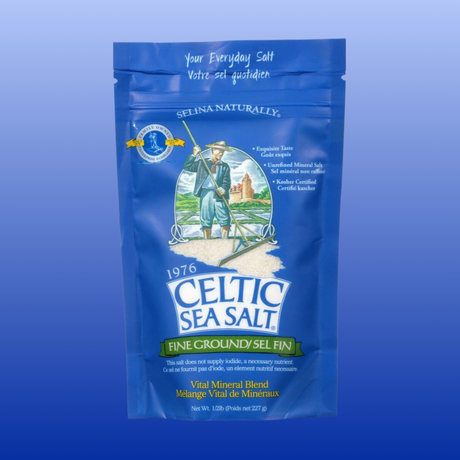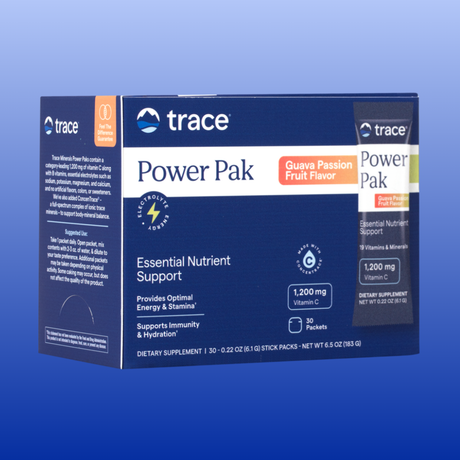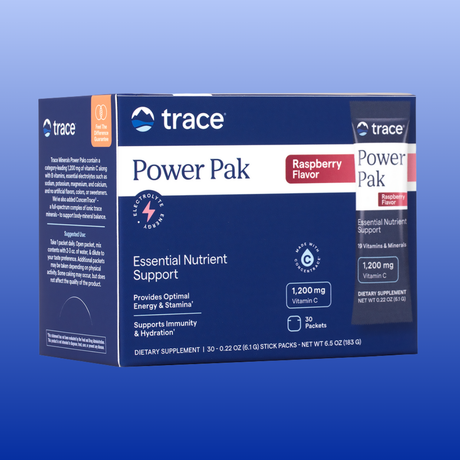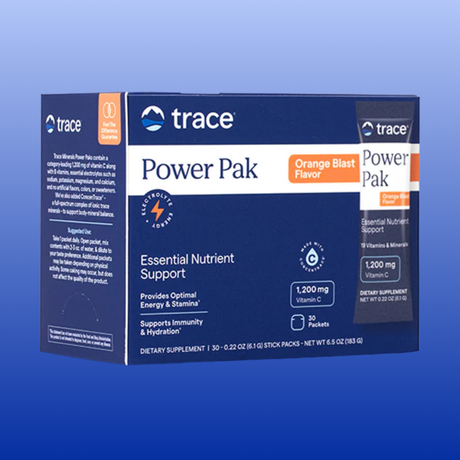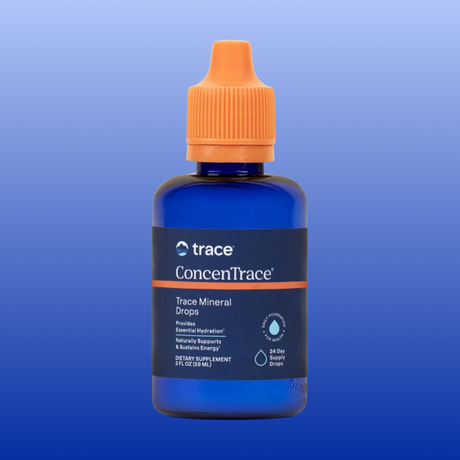Hydration Matters
Staying hydrated sounds simple enough: just drink more water, right? But hydration is about more than just how much water you drink. It’s about how well your body holds on to that water, how it uses it, and whether you’re getting the right minerals (electrolytes) to keep everything balanced.
Whether you're recovering from surgery, dealing with chronic fatigue, or just trying to feel better in your day-to-day life, hydration is a crucial piece of the puzzle. Let’s talk about what dehydration does to the body, how different beverages affect hydration, and how to naturally support your body with high-quality electrolytes.
The Effects of Dehydration
You don’t have to be stranded in the desert to be dehydrated. Mild to moderate dehydration is surprisingly common and often goes unnoticed. The symptoms can be subtle at first, but over time they affect almost every system in the body.
Common signs of dehydration include:
- Fatigue or sluggishness
- Headaches
- Brain fog or trouble concentrating
- Dry mouth or skin
- Muscle cramps
- Dizziness or lightheadedness
- Constipation
- Dark or infrequent urination
Chronic dehydration can even affect blood pressure, kidney function, and the body’s ability to heal after illness or surgery. If you're recovering from a procedure or injury, staying properly hydrated helps reduce inflammation, supports circulation, and improves nutrient delivery to cells. You’d be surprised how many anecdotes we’ve heard about people who had mild headaches or general fatigue for years that ended once they began paying closer attention to their hydration levels.
How Much Water Do You Really Need?
The old “eight glasses a day” rule isn’t a bad baseline, but hydration needs vary from person to person. Factors like body size, activity level, climate, and health conditions all play a role.
A general guide:
- Women: About 2.7 liters (91 ounces) of total water per day
- Men: About 3.7 liters (125 ounces) of total water per day
This includes water from food and other beverages, not just straight drinking water. But keep in mind — if you’re sweating more, recovering from illness, or on certain medications, you may need more. If your urine is pale yellow and you're not feeling thirsty all the time, you’re probably in a good hydration zone.
Not All Beverages Hydrate Equally
What you drink — not just how much — makes a big difference.
Water
Still the gold standard. It hydrates without adding sugar, caffeine, or artificial ingredients. But plain water can pass right through you if your electrolyte levels are off, especially in cases of mineral deficiency or after heavy sweating.
Coffee and Tea
These can count toward your daily fluid intake in moderation. While caffeine has a mild diuretic effect, it's not strong enough to cancel out the water in the drink. Just don’t rely on them as your main hydration source, especially if you’re drinking several cups per day.
Juice
Hydrating, yes, but also very high in sugar. Best used in small amounts or diluted with water. Fresh-squeezed or low-sugar options are better than processed juices with added sweeteners.
Soda
Hydrates to some extent, but the sugar, caffeine, and phosphoric acid can interfere with mineral balance. A nice occasional treat, but definitely not ideal if your goal is actual hydration or recovery.
Why Electrolytes Matter
Electrolytes are minerals that help your body hold on to water. They’re responsible for things like fluid balance, nerve signaling, muscle function, and pH regulation. When you sweat, get sick, or experience physical trauma (like surgery), you lose electrolytes, especially sodium, potassium, magnesium, and calcium.
Without enough electrolytes, drinking more water won’t help much. In fact, it can make things worse by flushing out the minerals you do have. This is where electrolyte drinks come in. However, not all electrolyte drinks are created equal. Many commercial sports drinks are loaded with sugar, dyes, and artificial flavors. If you want something cleaner and more supportive, there are better options.
Natural Hydration Support Products We Trust
This is a go-to for people who want fast, effective electrolyte support — without artificial junk. Each packet contains a full spectrum of electrolytes plus 1,200 mg of vitamin C, which supports immune health and healing. It’s a solid option if you’re feeling run down, recovering from travel or illness, or working out regularly.
How to use it:
Mix one packet in water once or twice a day, especially after sweating or during recovery. It comes in several delicious flavors that make it easy to drink.
2. Selina Naturally Celtic Sea Salt (8 oz)
This is real, mineral-rich salt harvested using traditional methods. Unlike table salt, Celtic sea salt contains a broad range of trace minerals.
How to use it:
Add a small pinch to a glass of water in the morning or before meals. You can also use it in cooking or sprinkle it on food to enhance mineral intake naturally.
3. Trace Minerals ConcenTrace Drops
These concentrated liquid drops provide over 72 naturally occurring ionic trace minerals, sourced from Utah’s Great Salt Lake. They help improve the body’s ability to absorb and retain water, especially if you’re depleted.
How to use it:
Start with 10 drops in a large glass of water once a day and adjust as needed. The taste is strong, so you can mix it with juice or tea if you prefer.
DIY Electrolyte Drink Recipe
If you want a simple, natural electrolyte drink you can make at home, here’s one that works well and doesn’t empty your wallet.
Homemade Electrolyte Drink
Ingredients:
- 2 cups filtered water
- Juice of ½ lemon or lime
- 1–2 teaspoons raw honey or maple syrup
- 1/8 teaspoon Celtic sea salt
- Optional: 1–2 tablespoons orange juice or coconut water for extra flavor
Instructions:
Mix all ingredients well and sip throughout the day. You can double the recipe and keep it in the fridge for up to 2 days.
This drink is especially helpful if you’re recovering from a stomach bug, heat exposure, physical exertion, or medical procedure.
Best Times to Focus on Hydration
Some moments when your body especially needs hydration and electrolyte support:
- First thing in the morning — You wake up slightly dehydrated
- During and after exercise — Even light movement increases fluid loss
- After any illness — Especially fever, vomiting, or diarrhea
- While recovering from surgery or trauma — Healing tissues need water
- In hot or dry climates — Sweat loss can be deceptive
- When traveling by air — Airplane cabins are extremely dehydrating
Staying ahead of hydration during these times helps your body perform better, recover faster, and feel more balanced.
Hydration isn’t just about drinking more water. It’s about helping your body absorb and use water effectively — and that’s where minerals come in. If you’re feeling tired, foggy, or just “off,” there’s a good chance you could use more than just a glass of water. Electrolytes support energy, focus, and healing from the inside out.
Products like Power Pak, ConcenTrace Drops, and Celtic Sea Salt offer easy, natural ways to support your hydration without loading up on sugar or additives. And if you like to keep things homemade, a DIY drink with lemon, honey, and sea salt does the job just fine.
Listen to your body. If you’re thirsty, tired, or just not bouncing back the way you usually do, think about hydration and make sure it includes the minerals your body needs to thrive.


